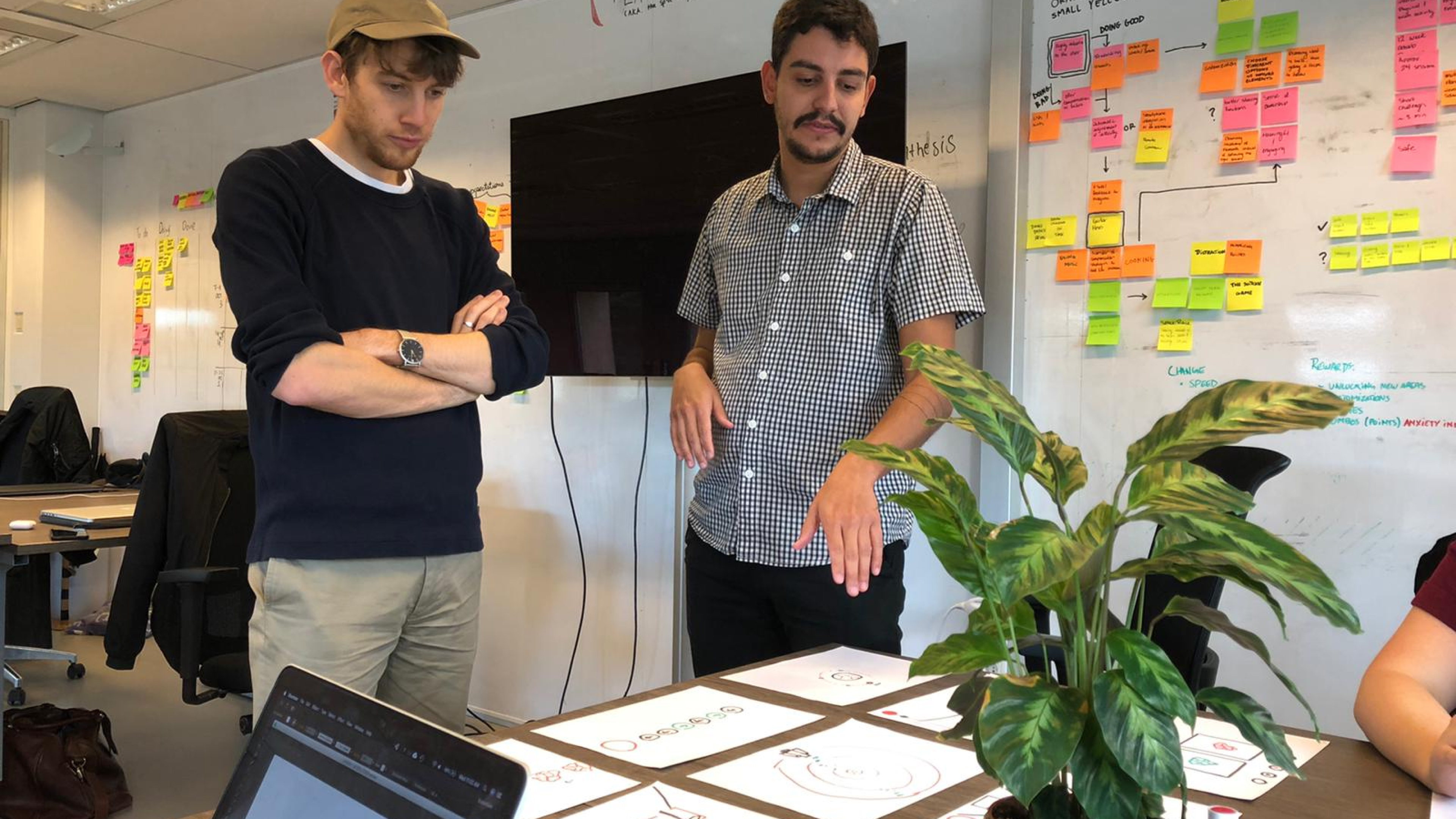Project Name
TERRA
Client
National Cancer Institute NL
Tilburg University
Timeframe
19 SEP – 18 OCT 2019
Description
Terra is cognitively challenging game combined with a stationary bike. Our objective is to extend Terra with new and playful activities that can be used to provide physical and cognitive stimulation using the Terra system.

We received this project as a continuation from last year’s 20 week project. Therefore we started by a debriefing session and analysing all the data that was gathered before us.
Besides analysing the research conducted by the previous group, we also started researching cognitive mini-games. However, at this point we were only limited to ones with medical applications.
A few of them specifically covered the cognitive challanges that we had to work with, but they mostly seemed too childish and they we are also way too complicated to apply them in an environment with only 2 control buttons.

Based on our research we started sketching mini-game ideas that would work with 2 control buttons and could challenge certain cognitive functions.
These included short term memory, reaction time and divided attention as well.

We didn't have direct contact with our target audience, however we were able to test certain concepts with our classmates. The most liked idea was the rhythm based mini-game resembling Guitar Hero™. We chose to develop that one also because it challenges multiple deficits at once.

We started building the game from scratch. When we had the structure of the gameplay done we adapted the visual style of last year's project.

During the building phase, I was mainly responsible for making a new soundtrack for the game. Both our research and the client supported the idea of having audio while playing the mini-game. I had to balance a percussive nature while keeping it non-anxiety inducive. I was mindful of carefully removing any harsh frequencies that would disturb the patient.

We developed the content and the illustrations for our long term plan that would help future developers to put the game into an overarching context. It consists of High Intensity, Low Intensity and Reflective sessions too.
Project Name
Recycling
Client
Hogeschool van Amsterdam
Universiteit van Amsterdam
Timeframe
8 NOV – 20 DEC 2019
Description
The current contract between the waste collection company and the HvA & UvA expires at the end of 2020. The Waste Management Team has decided to develop a new vision on waste with more organised streams of waste.
P
The universities currently incinerate 65-75 of all waste and use virtually no separation of waste streams (exc. high quality paper).
The goal of the new vision is to reduce all residual waste to 10-15. The 3 parties are looking for a way to reuse the rest of the waste to make new products & raw materials.
Initial Design Challenge
We received clearly defined objectives in the brief:
[1] The users can clearly tell that the new waste management method is sustainable and that the school is responsibly disposing of its waste.
[2] The user takes their own trash to the 3 streams of waste bins.
[3] The user throws the waste in the correct bin.
Focused Design Challenge
Instead of focusing on instructing people how to separate their trash correclty, let’s improve the quality of the recycling streams by preventing their contamination.

We received this project as a continuation from last year’s 20 week project. Therefore we started by a debriefing session and analysing all the data that was gathered before us.
Besides analysing the research conducted by the previous group, we also started researching cognitive mini-games. However, at this point we were only limited to ones with medical applications.
A few of them specifically covered the cognitive challanges that we had to work with, but they mostly seemed too childish and they we are also way too complicated to apply them in an environment with only 2 control buttons.







